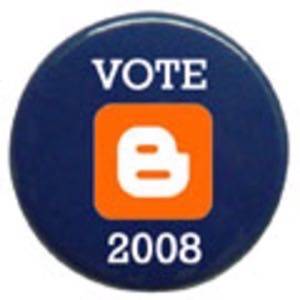We’ve written a lot about the Internet’s role in American politics over the past six months as the US heads toward presidential elections next fall. How the web is playing a key role in this election cycle is a fascinating story, but the Internet is having a profound effect on politics in other parts of the world. We’ve focused on the US mainly because elections there are the most well publicized worldwide, and because the majority of RWW’s lead writers hail from America. In Malaysia, though, web users have been able to draft three popular bloggers to stand for seats in the country’s parliament.

The bloggers, Jeff Ooi, Tony Pua, and Badrul Hisham Shahari are all running on tickets in opposition to the ruling party that his been in power for about fifty years. According to Reuters, the three are hoping that popularity on the Internet will translate into support at the polls.
As we’ve seen in the US, going from Internet popularity to votes cast is a tall order to fill, and in Malaysia especially, the bloggers-turned-candidates will face a tough uphill climb to get elected. Only about on fifth of Malays have access to the Internet, yet about 42% of the country’s 26 million people are registered to vote. Because getting press attention outside of the Malaysian blogosphere is nearly impossible for these candidates, making an impression on voters will be difficult.
Though the bloggers have found a devoted readership outside of the largely pro-government mainstream press, there isn’t much faith in their ability to make much of an impact on March 8th when polls open. “Beyond the major cities like Kuala Lumpur and Penang, there’s not much the bloggers can really hope to accomplish,” Mohamad Norza Zakaria, a leader in Prime Minister Abdullah Ahmad Badawi’s UMNO party, told Reuters.
In the US last week, another blogger was nearly drafted into the political arena. Popular blogger, author, columnist, and law professor Lawrence Lessig was said to be contemplating a run for the US Congress in California’s 12th district after a Facebook group urging the run attracted over 4,000 members. Lessig announced yesterday that he would not run.
But bloggers have become the thought leaders for a new generation. Blogs are increasingly becoming hubs for political and social discourse, so it makes sense that people see bloggers whose ideas they respect and admire as viable political candidates. We’ve had an actor become president in the US, why not a blogger?

















